It’s not quite Chocolate City, but recent election wins by African-American politicians has the Big Apple on the verge of being the hub of Black Power.
Not only is the nation’s largest city poised to elect its second African-American mayor and its first African-American district attorney, New York City’s new Black power surge has already made significant inroads in state government and may soon even shake up the halls of Congress.
And that’s just on the surface. Behind the scenes is a slate of party bosses, city council members and energized voters ready to usher in a new day for New York’s long-suffering Black community.
“There is no question we are living in a golden age of Black political power,” said Rep. Ritchie Torres (D-N.Y.), a freshman congressman from the Bronx, who is part of the city’s new political wave of influence.
“It will certainly mean a greater commitment to racial equity. Personnel is policy. People bring their experiences or faces to public life.”
Not since David Dinkins took the oath of office as New York City’s first Black mayor in 1990 has there been this much excitement around racial equity in the city. But even then, Dinkins didn’t have the authority Brooklyn Borough President Eric Adams, who won last month’s Democratic primary for mayor, is expected to enjoy.
Dinkins won in a general election squeaker over Republican Rudy Giuliani, who beat him in a rematch four years later.
The lack of a mandate handcuffed Dinkins from the beginning. Adams, who faces Guardian Angels founder and radio host Curtis Sliwa in the fall, is not expected to fall into the same trap, even in a city that elected Republicans like Giuliani and billionaire Mike Bloomberg.
“No disrespect to Sliwa,” said political consultant Charlie King, who has run for New York lieutenant governor and state attorney general, “but Sliwa’s no Bloomberg or Giuliani.”
What kind of leadership should New Yorkers expect from Adams? King has two surprising words: Ed Koch.
Though he was a divisive figure in the city’s Black community, Koch, a three-term mayor from 1978 through 1990, was a strong, effective leader, King argued.
“You’re going to see a political strength in an Adam’s mayoralty that you haven’t seen in generations,” King said. “Koch was strong in his positions. If you didn’t like him you respected him. He was a strong mayor. He also represented New York. He epitomized New York. Koch brought an ethnicity to the mayoralty. He was a proud Jewish mayor. Eric will represent the Black community proudly and strongly while representing all of New York.”
But the Black power surge won’t stop at City Hall, insiders said. State Senate President Andrea Stewart-Cousins, Assembly Speaker Carl Heastie and state Attorney General Letitia James, all African Americans, are the most powerful players in Albany, after Gov. Cuomo.
And Washington isn’t far behind. New York’s congressional delegation includes seven Black members, the largest number in Congress from any state ever.
The delegation includes Rep. Hakeem Jeffries (D-N.Y.), New York’s highest-ranking House Democrat, who may become the first Black speaker of the House.
“We have a lot of people elected who are the firsts,” said state Assemblymember Rodneyse Bichotte Hermelyn, a Haitian-American who doubles as Brooklyn’s Democratic district leader, the first Black woman in the city to be a county boss.
The firsts could include Alvin Bragg, who is on the verge of becoming Manhattan’s first Black district attorney after winning last month’s Democratic primary.
But the savvy politicians realize that power in New York, or anywhere, is not easily conceded. A backlash is expected, just like the one that followed after Barack Obama became the nation’s first Black president.
But don’t expect this resistance to come from the rabid conservative base that put Donald Trump in the White House. This backlash, experts said, is coming from progressives.
“We still see a lot of racism in New York City,” Bichotte Hermelyn said. “Look at the Upper West Side. They want progressive, progressive, progressive, yet they voted white. A lot of people dress themselves in the progressive clothing , but their ideology doesn’t match with how they interact with people of color.”
King points out the City Council’s Progressive Caucus was not put in place until a ‘minority majority” emerged at City Hall.
“Imagine the irony of having a progressive caucus in New York City,” King said. “That’s because white City Council members felt threatened. The far left is used to telling the Black community what is best for them. That is the danger. That is where the true fight is going to be.”
Not to be left out is New York’s Afro-Latino community, which has traditionally been overlooked in the Hispanic community, said Torres, who is also gay.
Torres, who is Black and Puerto Rican, represents a district that is 64% Latino and 30% Black, according to Census data.
Last year, Torres challenged the Congressional Black Caucus to allow Afro Latinos to join both that caucus and the Hispanic Caucus after he said some makers were told to choose.
Ritchie now serves in both caucuses.
“I enjoy life in Congress,” Ritchie said. “It is the single greatest satisfaction of my life. We have never been more conscious of race and committed to confronting its root causes. It’s an exciting time to be in public life.”
©2021 New York Daily News. Visit nydailynews.com. Distributed by Tribune Content Agency, LLC.
—-
This content is published through a licensing agreement with Acquire Media using its NewsEdge technology.



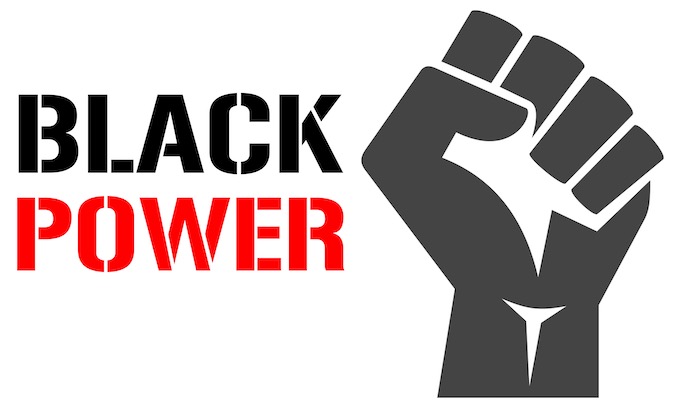
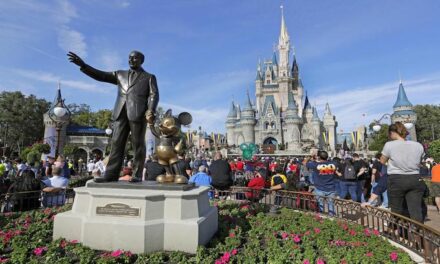
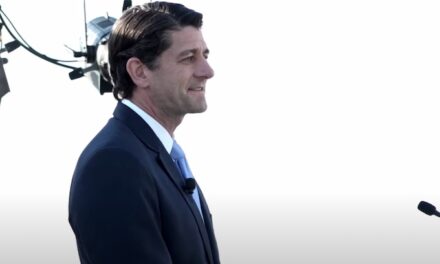
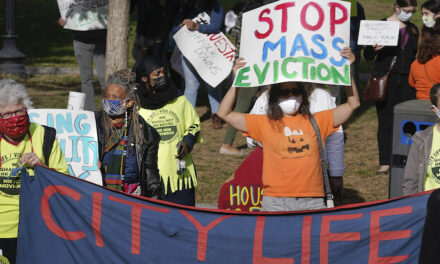
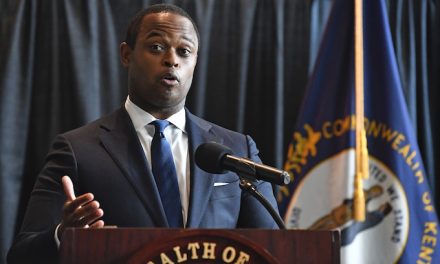











“There is no question we are living in a golden age of Black political power,” said Rep. Ritchie Torres (D-N.Y.)”. One day, I hear about the slave mentality that supposedly still exists and how down and out and oppressed Blacks are—next, I read there is a surge in Bklack political power. Just depends on the topic of conversation.
“We have a lot of people elected who are the firsts,” said state Assembly member Rodneyse Bichotte Hermelyn, a Haitian-American who doubles as Brooklyn’s Democratic district leader, the first Black woman in the city to be a county boss.” Choosing candidates based upon qualifications and intellect will produce better results for all involved. Putting a “first” into any position is simply pageantry.
Where ever blacks are in large numbes, nothing good happens.
I agree. NAME ME ONE city, or nation in this entire world, that is ran by blacks, that is BASTION OF health, civilness and security!
Gee. What could possibly go wrong with this line of thinking. Becoming drunk with power for one race. I’d be surprised if less than 25% of the population left within a few years.
They’ll just keep importing more illegals to fill the vacancies, AND COME UP WITH laws, to make it hard for those living there, to leave.
Well now, had I known this I would have never left. Look at all I’ll be missing out on ! LOL
I’d rather live in DEEP ANTARTICA, than i would NY… ANYWHERE IN NY….
Says King,
“We still see a lot of racism in New York City,” Bichotte Hermelyn said. “Look at the Upper West Side. They want progressive, progressive, progressive, yet they voted white.”
Think about that statement. I guess it’s true then that in 2008 and 2012 that Americans wanted good responsible government and yet they voted black (Obama). But we don’t hear any complaining about that ruse turning out the way it did.
So unless a white person votes for a black candidate that means the white person is racist. Ohhhhh, I get it.
YOU ain’t black if you don’t vote black”.
As long as they don’t act like Kim foxx of Chicago. Otherwise new York will look like South Africa ?? Have you seen the riots there.
Well, it’s a good thing that I visited New York City ten years ago when it was still a pretty awesome place. It will totally be going to the dogs now.
1994, fleet week is the LAST time i ever went there. YOU COULDN’T PAY ME enough to visit it now.. Just like Chicago, or ANYWHERE IN Commiefornia, Oregonistan or washing-a-ton…
I have no problem with the color of any politician, as long as they are qualified and do not have a personal agenda for getting elected. Well, let me clarify – with the current “manufactured” racial situation and the constant pushing for candidates of “Color” I’m afraid they all have an agenda. I mean – who can you trust to be qualified when the only motivating factor to elect is color????
WHo the hell needs qualifications. WE GOT BLLLLAAAACCCKKKKK PPOOOOWWWAAAAARRRRR!!!
Good bye NYC, hello Rawanda.
That’s what Baltimore said 50 years ago. Good luck if they are Dems.
Should be a great social experiment. After all the anti white talk lets see how it turns out.
Tyranny by a minority is 1000 times worse than tyranny by the majority. See South African apartheid.
Communism coming to America. Color it black…
COMMUNISM IS Damn near already here.